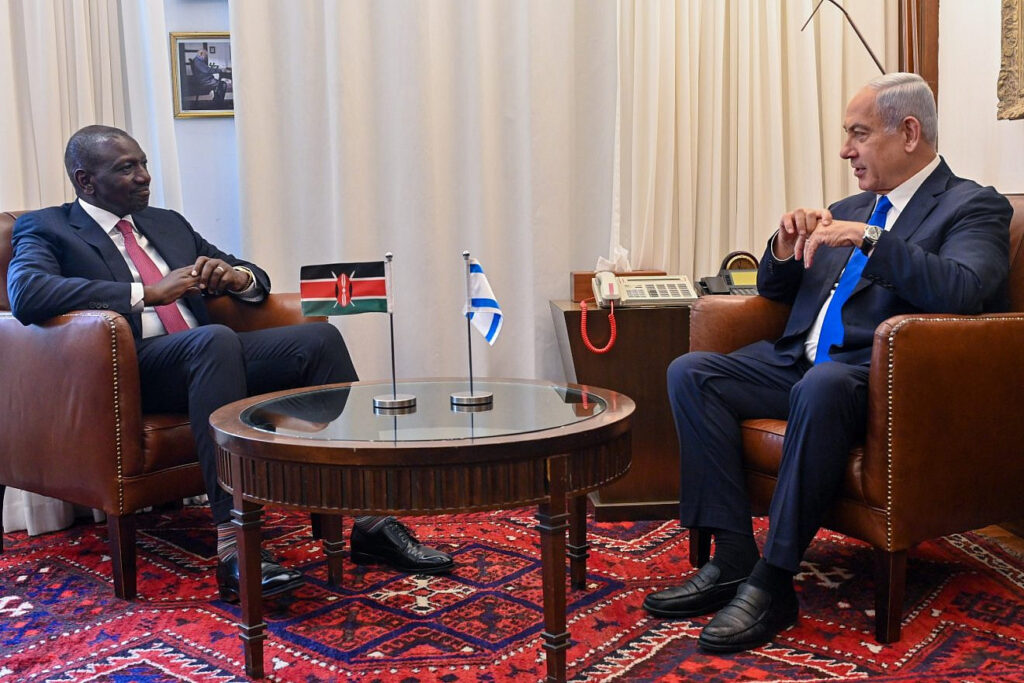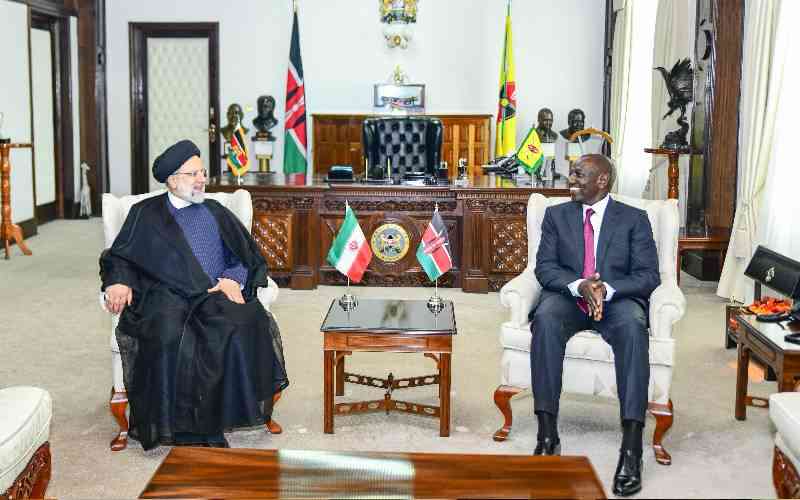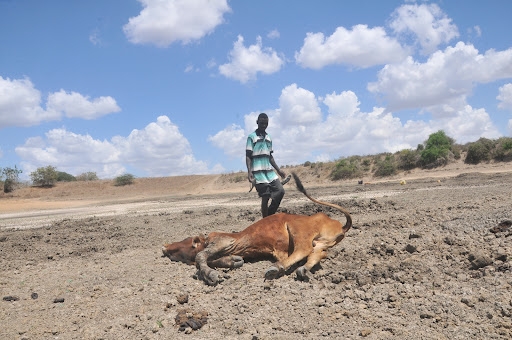
As tensions continue to rise between Israel and Iran, Kenya is navigating a delicate diplomatic path.
Kenya’s strategic position in East Africa places it at the
crossroads of competing interests, making it crucial to
maintain balanced relations with both sides.
While Kenya has faced its security challenges, including terrorism and extremist groups, it remains mindful of its comment on the war as it could exacerbate issues and damage its foreign policy.
With its crucial role in the region where many countries have varying allegiances, Kenya has avoided being drawn into a proxy war that might destabilise the region.
In a statement to newsrooms Wednesday night, Prime Cabinet Secretary and Foreign Affairs Cabinet Secretary Musalia Mudavadi avoided taking sides on the matter only expressing concerns about the safety of its citizens.
“The Republic of Kenya notes with profound concern the worrying developments in the Middle East that began on October 1, 2024,” he said.
“Kenya's concerns at this time are, first and foremost, with the Kenyan diaspora in Israel, Iran, Lebanon, and across the Middle East.”
While calling on the parties and their supporters to exercise the highest restraint towards the prevention of escalation of conflict, Musalia noted that this would have detrimental effects on the economies of the Eastern African region.
This, he noted, particularly on global oil prices.
Kenya, according to the PCS, also encourages the peaceful resolution of all disputes in accordance with the United Nations Charter and applicable international conventions.
“The government shall remain closely apprised of the developments in the Middle East and remains committed to protecting its citizens across the world,” he added.
Kenya's economy heavily relies on tourism and trade hence the decision to tactically avoid leaning to one side as it could significantly affect it.
Currently, it has deep ties with both the Arab world and Western allies.
Israel and Iran both have embassies in Kenya.
Israel-Kenya relations
Israel-Kenya diplomatic relations date back to December 1963.
Israel was the first country on December 10, 1963, to lay a foundation stone for her Embassy in Kenya, two days before the declaration of Kenya’s independence on December 12, 1963.
Israel was also the first country to build its Embassy in Nairobi.
While many countries around the globe played a “wait and see” diplomatic approach following the exit of the British from Kenya, Israel’s then Foreign Affairs Minister, Golda Meir flew to Nairobi and discussed the country’s plans to establish the Embassy in Kenya with late president Jomo Kenyatta.
In 1976, Kenya supported Israel during the Entebbe raid.
This friendship has endured and Kenya is also grateful to Israel for among others, the rescue assistance extended during the bombings of the US Embassy in Nairobi in 1998 and the collapsed building in Nairobi in early 2006.
In 2011, the two countries signed a treaty to cooperate in fighting against terrorism, money laundering, and other crimes.
In 2013, Israel sent troops to assist Kenyan forces fighting Somali Islamist terrorists who attacked the Westgate shopping mall in Nairobi.
Kenya’s imports from Israel were Sh4.8 billion (US$37.17 million) last year, according to the United Nations COMTRADE database on international trade.
The main exports to Israel are agriculturally based while the main imports from Israel consist of manufactured goods, farm implements including fertilizers, chemicals and high technology goods.
Kenya-Iran relations
The relationship dates back to 1971.
These ties witnessed tremendous progress following the victory of the Islamic Revolution in 1979.
Kenya's exports to Iran were US$48 Million in 2023, according to the United Nations COMTRADE database on international trade.
This includes coffee, tea, meat, live animals, textile articles, printed books and paper among several others.
On the other hand, imports from the country are crude oil, inorganic/organic chemicals, fertilizers, plastic and articles, glass and glassware, natural or cultured pearls, precious or semiprecious stones and leather.
Kenya has signed numerous deals with the country including a deal to export 4m tonnes of oil to Kenya annually, direct flights between Tehran and Nairobi and scholarships for Kenyans to pursue higher education in Iran.
Exports from Kenya to Iran in 2012 stood at Sh1.95 billion (EUR. 18.3 million) while the value of imports from Iran to Kenya stood at Sh3.67 billion (EUR. 34.5 million).

















